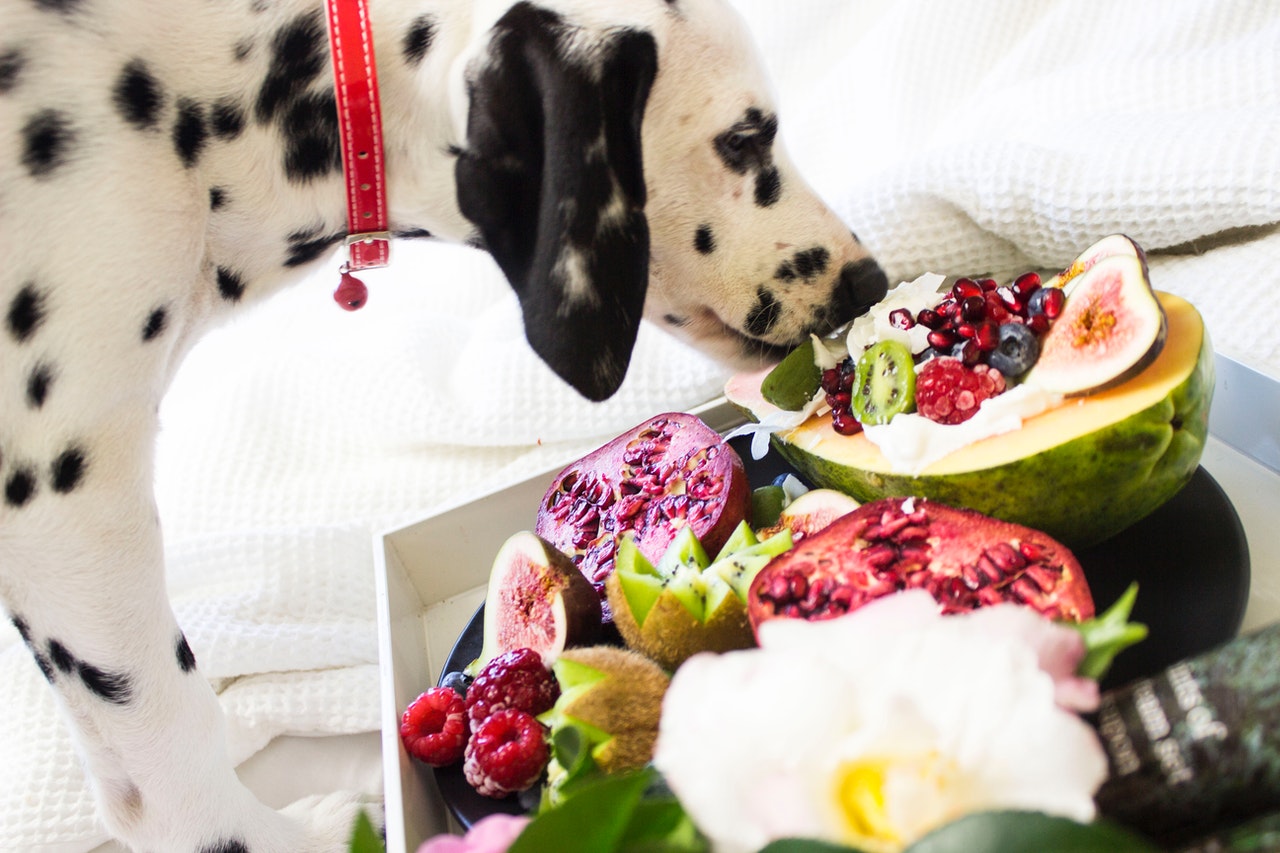Have you ever wondered if dogs can crunch fruit and eat it as a treat? We have prepared a list of fruits that are safe for your dog as recommended by experts. Of course, you have to be careful, because this is not a substitute for a balanced meal, because the dog needs protein intake.
Adding vegetables and fruits in your dog's meals or as snacks during the day is an easy way to enlargement intake of fiber or elimination of vitamin deficiency.
The fruit provides the dog with natural minerals and antioxidants in raw form. They are also hydrated, can improve cognitive functions and reduce various inflammations.
How to feed your dog fruit
There are many ways you can offer your dog fruit. You can like frozen treat, cut into small pieces or grated. However, it is necessary to take care to remove the bones, peel, stem parts and to offer it cut into small digestible pieces, because otherwise there may be a danger of suffocation.
Since fruit is a sweet treat, it's important to stick to it fresh fruit and not the one from a can, as it contains additional sugar.
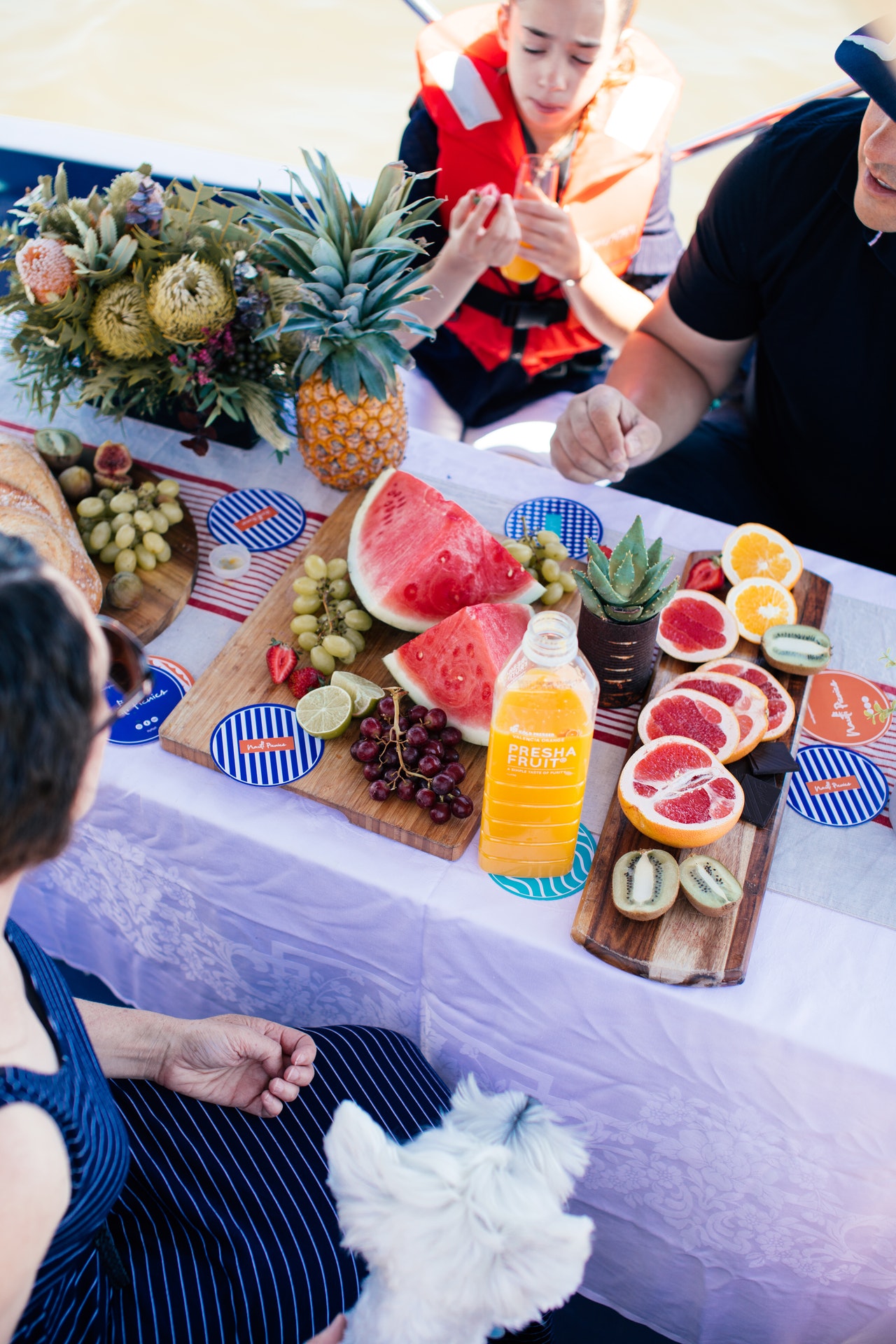
Photo: Rachel Claire / Pexels
1. Apples
Apples are rich in fiber and vitamins A and C, making them a great snack for dogs. All seeds and stems must be removed as they contain small amounts of cyanide and can pose a choking and poisoning hazard.
2. Apricots
They contain beta carotene, which helps improve vision. They contain a high amount of carotene, which is why they also have a beneficial effect on the immune system. They also contain vitamin C and substances that help heal wounds and have a beneficial effect on hair and skin. However, it is necessary to remove the stone and the shell.
3. Bananas
Bananas are an ideal highly nutritious treat for dogs. In moderation, bananas are a great low-calorie treat, as they contain a lot of potassium, vitamins, biotin, fiber and copper.
4. Blueberries
These not-so-powerful berries are full of antioxidants, fiber and phytochemicals that are good for overall immune system health.
5. Melon
Another food rich in fiber. Melon is refreshing and will hydrate the dog, it is necessary to remove the skin and stones. If your dog has diabetes, it is not suitable for him, as it contains a lot of sugar.
6. Coconut and coconut oil
You can give your dog a small bite of coconut fruit. This one is rich in lauric acid, which has many potential benefits, including antibacterial, antiviral, antifungal and anti-inflammatory. Avoid desiccated coconut and its water.
7. Cranberries
Cranberries are an excellent source of vitamins C and E. They take care of the immune system, heal wounds, important for growth and metabolism. However, it is important not to overdo it, as it can lead to stomach irritation.
8. Dates
Dates are safe for dogs and contain vitamins A, C and B. Because they are rich in sugars, they should be given in moderate amounts.
9. Kiwis
Kiwi contains a lot of vitamin C, so it has a beneficial effect on the immune system, metabolism and improves connective tissue problems. It is recommended to feed only very ripe fruits, which are already sweet enough, and you must remove the peel and all the stones. Unfortunately, some dogs are hypersensitive to kiwi, as it can cause diarrhea.
10. Mango
This sweet summer treat is packed with four different vitamins: A, B6, C, and E. Just remember to remove the pits first, as with most fruits, as they contain small amounts of cyanide and are a choking hazard. Mangoes are high in sugar, so only use them as an occasional treat.
11. Oranges
According to vets, oranges are fine, but most dogs aren't big fans of this strong-smelling citrus fruit. Oranges are an excellent source of vitamin C, potassium and fiber, and in small quantities, the juicy flesh of an orange can be a tasty treat. Veterinarians recommend that you peel the skin and offer the dog only the flesh of the orange, and remove all the seeds even before that.
12. Papaya
In small amounts, papayas are great dog treats. Avoid the peel and seeds.
13. Peaches
Peaches are juicy snacks full of vitamins A and C and fiber. They contain a lot of carotene and have a good effect on the immune system. They have a beneficial effect on the heart and strengthen it, help drain water from the body and speed up digestion.
14. Pears
Pears are a fruit that is quickly digested. They have a beneficial effect on the intestines, cleansing, detoxifying the body. Because they taste sweet, dogs absolutely love them. Stick to fresh pears without stalks, skins and pits.
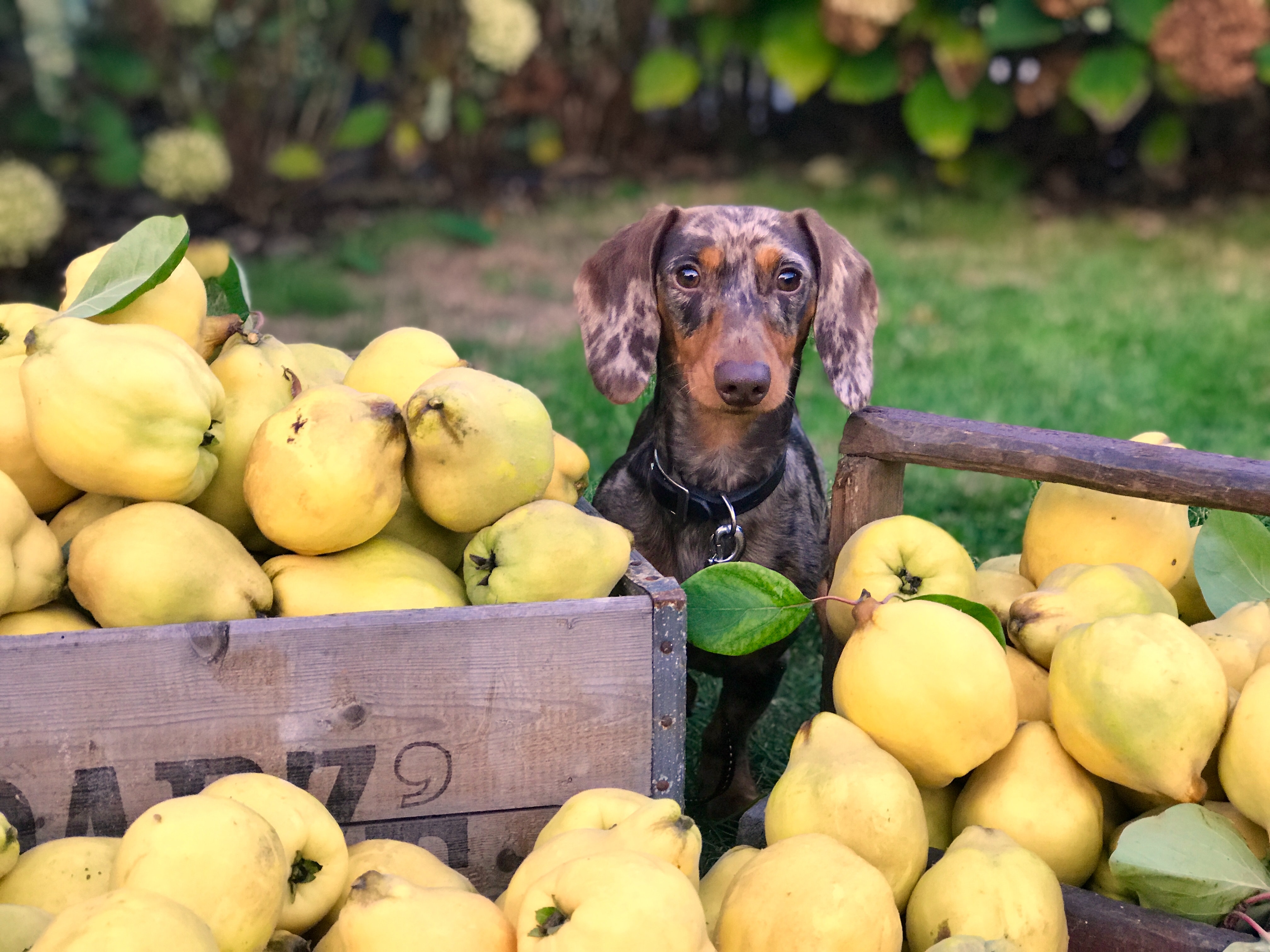
Photo: Nathalie De Boever/Pexels
15. Pineapple
A few pieces of pineapple make a great sweet treat for dogs. This fruit is full of vitamins, minerals and fiber and is an excellent medicinal agent that helps with digestion and at the same time destroys parasites, worms and bad bacteria in the intestines. It is necessary to remove the peel and spines.
16. Raspberries
Raspberries are full of antioxidants and fiber. Raspberries are especially good for older dogs as they have anti-inflammatory properties that can help the joints. However, they contain small amounts of toxic xylitol, so limit the amount.
17. Strawberries
Strawberries are a hydrating fruit with a lot of vitamin C. They have a beneficial effect on diarrhea, flatulence and other digestive problems. They have a good effect on the dog's skin and coat. They detoxify the entire organism and strengthen the immune system.
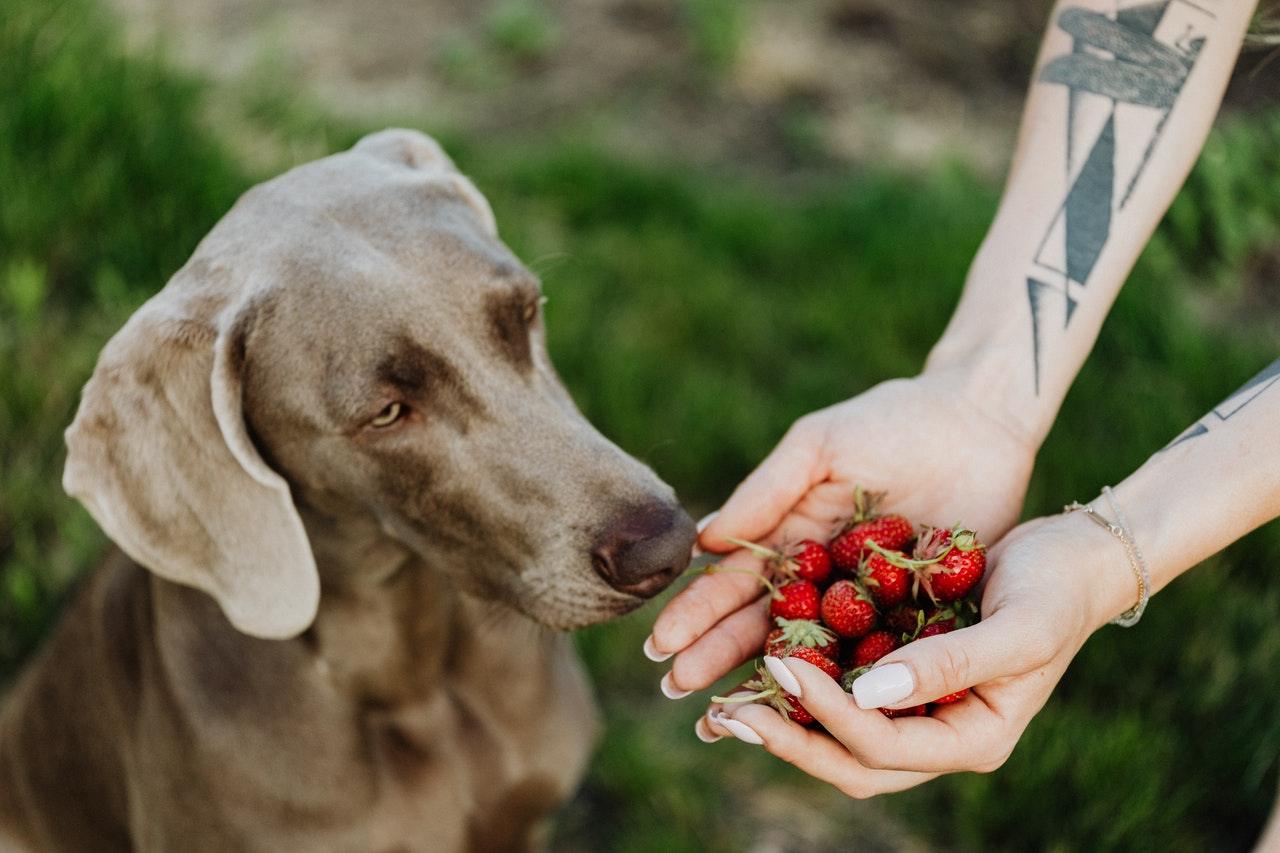
18. Watermelon
Watermelon is an incredibly hydrating dog treat that is full of vitamins A, B-6 and C and potassium. It is important to remove the skin and seeds first, as they can cause intestinal blockage.
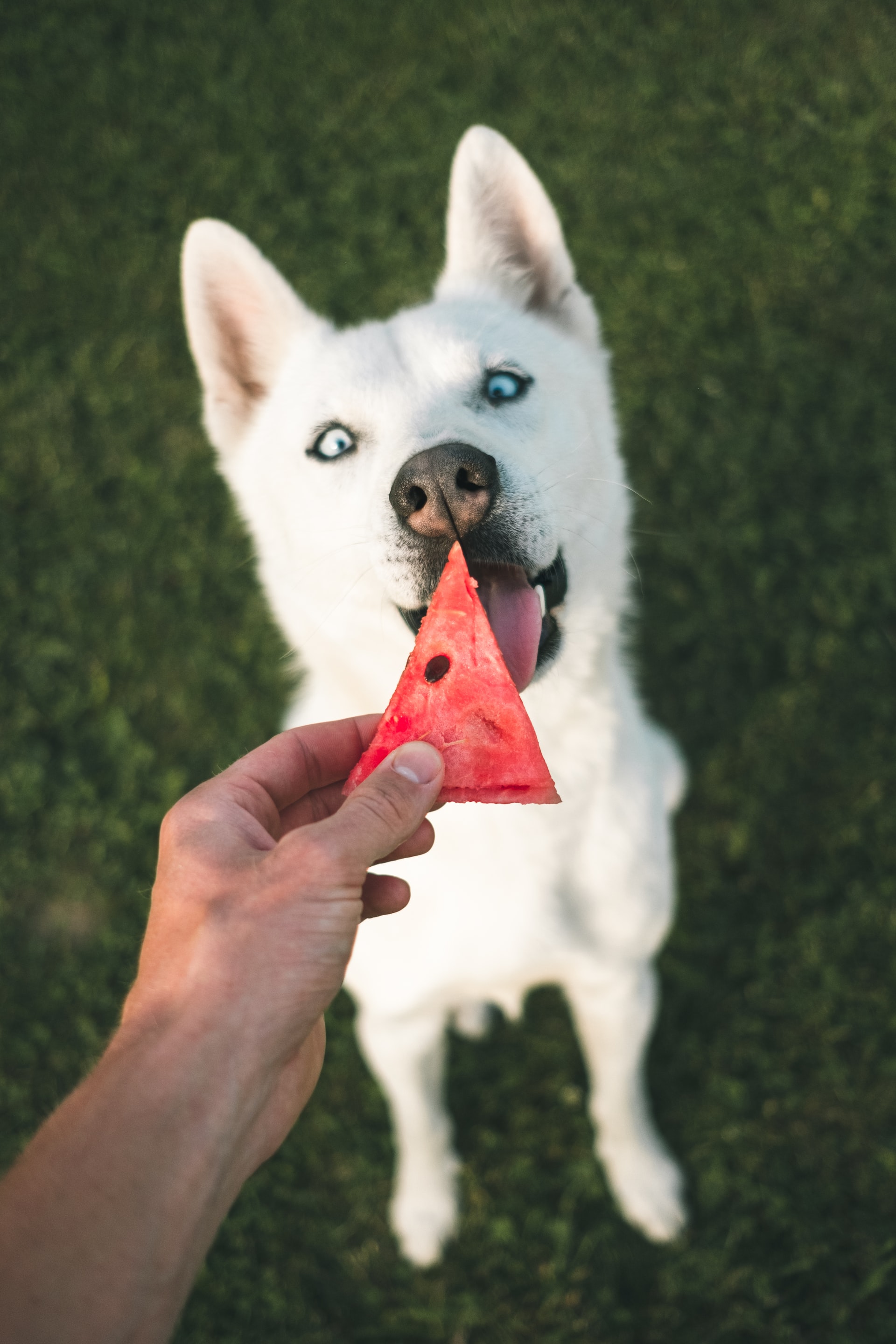
Photo: Marek Szturc/Unsplash
Fruit that dogs should not eat
1. Avocado
While avocados may be a healthy snack for dog owners, they shouldn't be given to dogs at all. In the stone, on the peel and in the leaves of the avocado there are persins, poisons that often cause vomiting and diarrhea in dogs.
2. Blackberries
If you're lucky enough to have a little blackberry, don't share it with your puppy. Eating them usually causes diarrhea.
3. Cherries
Siocer cherries can be enjoyed by dogs, but due to their small size, long stems and embedded stones, it is not worth the risk of giving them to your pet as they can choke on them.
4. Grapes
Grapes are poisonous to dogs and should never be offered as a snack or treat. Eating grapes can cause kidney failure, so make sure your dog doesn't have access to grapes.
5. Lemon
The acidity of lemon juice is too much for your dog's stomach. In addition, the seeds are also poisonous.
6. Lime
Like lemons, this fruit is too sour to be worth the risk. If a dog eats it, it can cause vomiting, diarrhea and occasional dermatitis.
7. Plums
Plums are not suitable for consumption as they cause inflammation and irritation of the stomach.
8. Raisins
Raisins are not good for your dog as they cause vomiting, diarrhea and excessive salivation.
Nbut the beginning is definitely better, to try giving po to your dog one type of fruit, as this will make it easier for you to find out how your dog reacts to it. It is definitely good that the dog gets a variety of fruit treats, as this is the only way to ensure the intake of various vitamins. If you are not sure if you can offer fruit to your dog due to a medical condition, be sure to check with your veterinarian.



